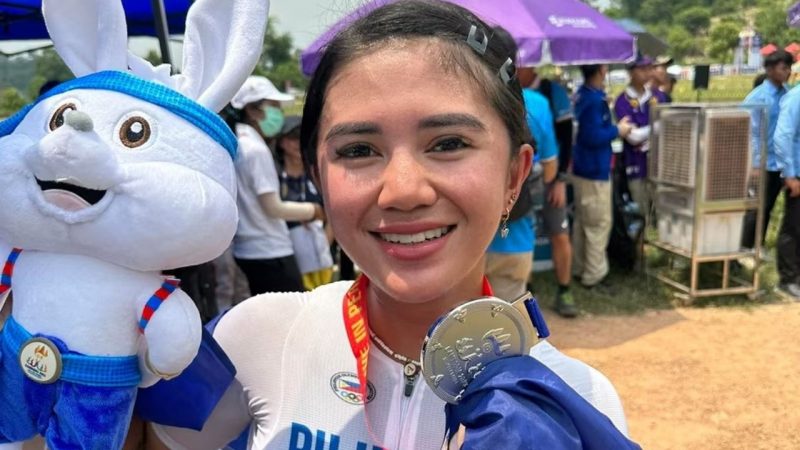ARIANA Evangelista, a seasoned cyclist from the Philippines, has been provisionally suspended by the International Testing Agency (ITA) after testing positive for a banned substance during the Asian Games.
Evangelista, who secured a silver medal in the women’s cross-country eliminator at the Southeast Asian Games last May, failed a drug test for the prohibited substance erythropoietin, which is known to enhance athletic performance.
In an official statement dated October 4, the ITA revealed that “two samples (blood and urine)” were collected during an out-of-competition anti-doping control on September 24 in Hangzhou, China, during the Asian Games.
Despite the positive test, the 27-year-old Evangelista participated in the women’s cross-country Olympic mountain bike competition the following day, finishing in 13th place.
Another athlete, Saudi Arabian distance runner Yousef Mohammed Alasiri, who was scheduled to compete in the men’s 5,000 and 10,000 meters events at the Hangzhou Games, did not start in either race due to a positive drug test.
“The athlete has been informed of the case and has been provisionally suspended with immediate effect. She has the right to request the analysis of the B-sample,” stated the ITA.
PhilCycling, the governing body for cycling in the Philippines, expressed its disappointment, describing the incident as “unfortunate” as it involved one of the country’s “finest riders in MTB (mountain bike).” In a statement released on October 5, the federation reaffirmed its commitment to supporting its athletes while vehemently opposing the use of illegal substances and doping.
Earlier this month, the ITA also announced the suspension of Saudi distance runner Mohammed Yousef Alasiri after he tested positive for the banned substance darbepoetin. Additionally, Afghan boxer Mohammad Khaibar Nooristani became the first doping case in the current edition of the Asian Games and was suspended on September 28. (ai/mnm)







